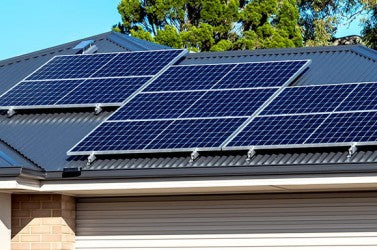
Are you an avid traveler who enjoys the freedom of the open road? If you're an RV owner looking to embrace sustainable energy and reduce your reliance on traditional power sources, harnessing solar power is an excellent solution. In this guide, we'll walk you through the process of connecting solar panels to your RV batteries, allowing you to enjoy a greener and more self-sufficient adventure. So let's dive in and explore the world of solar power for your RV!
I. Understanding Solar Power Basics
Before delving into the nitty-gritty of hooking up solar panels to your RV batteries, let's start with some essential knowledge about solar power.
1.1 The Power of the Sun
The sun is an abundant and renewable source of energy that can be converted into usable electricity. Solar panels consist of photovoltaic cells that capture sunlight and convert it into direct current (DC) electricity.
1.2 The Role of Solar Charge Controllers
Solar charge controllers are crucial components in any solar panel setup. They regulate the power flow from the panels to the batteries, ensuring efficient charging and preventing overcharging or damage to the batteries. These controllers also protect your batteries from voltage fluctuations and reverse current.
II. Selecting the Right Solar Panels for Your RV
To maximize the benefits of solar power for your RV, choosing the appropriate solar panels is key.
2.1 Calculate Your Power Needs
Start by assessing your power requirements. Consider the appliances, devices, and systems you want to power, as well as your expected energy consumption. This information will help determine the number and wattage of solar panels you'll need.
2.2 Solar Panel Types
There are different types of solar panels available, including monocrystalline, polycrystalline, and thin-film panels. Monocrystalline panels are known for their high efficiency and sleek appearance, while polycrystalline panels are more affordable and suitable for larger spaces. Thin-film panels are flexible and lightweight, ideal for irregular or curved surfaces.
2.3 Evaluating Solar Panel Efficiency
Efficiency is a crucial factor to consider when choosing solar panels. Higher efficiency means more power generation per square foot, which is particularly valuable for RVs with limited roof space. Opt for panels with high efficiency ratings for maximum energy output.
III. Installing Solar Panels on Your RV
Now that you have the right solar panels, let's move on to the installation process.
3.1 Mounting the Panels
Ensure that your RV roof is clean and free of debris before mounting the solar panels. Use appropriate mounting brackets or adhesive to secure the panels, ensuring they are positioned to capture optimal sunlight. Be mindful of any shade-casting obstructions, such as vents or air conditioning units.
3.2 Wiring the Solar Panels
Connect the solar panels to the solar charge controller using appropriately sized and rated cables. It's crucial to follow the manufacturer's instructions and wiring diagram to ensure a safe and efficient connection. Use cable glands or waterproof connectors to seal entry points into your RV to prevent water damage.
3.3 Installing the Solar Charge Controller
Mount the solar charge controller in a convenient location inside your RV. Connect the controller to your RV battery bank, following the recommended wiring configuration provided by the manufacturer. Ensure proper fusing and grounding for safety.
IV. Maintaining and Monitoring Your Solar Power System
To ensure optimal performance and longevity of your solar power system, regular maintenance and monitoring are essential.
4.1 Cleaning the Solar Panels
Periodically clean the solar panels to remove dust, dirt, and debris that may reduce their efficiency. Use a soft cloth or sponge and mild detergent, avoiding abrasive materials that could scratch the surface.
4.2 Monitoring System Performance
Invest in a solar power monitoring system or use a multimeter to keep track of your solar panel's output, battery charge levels, and other relevant data. This will help you detect any potential issues and ensure your system is operating optimally.
Conclusion
By following this comprehensive guide, you're well on your way to embracing the benefits of solar power for your RV. The key is to carefully select the right solar panels, install them correctly with the help of a solar charge controller, and maintain your system regularly. Embracing solar energy not only reduces your environmental footprint but also provides you with greater independence and peace of mind during your adventures on the road. So go ahead and harness the power of the sun, and enjoy the freedom of sustainable travel!

0 Kommentare